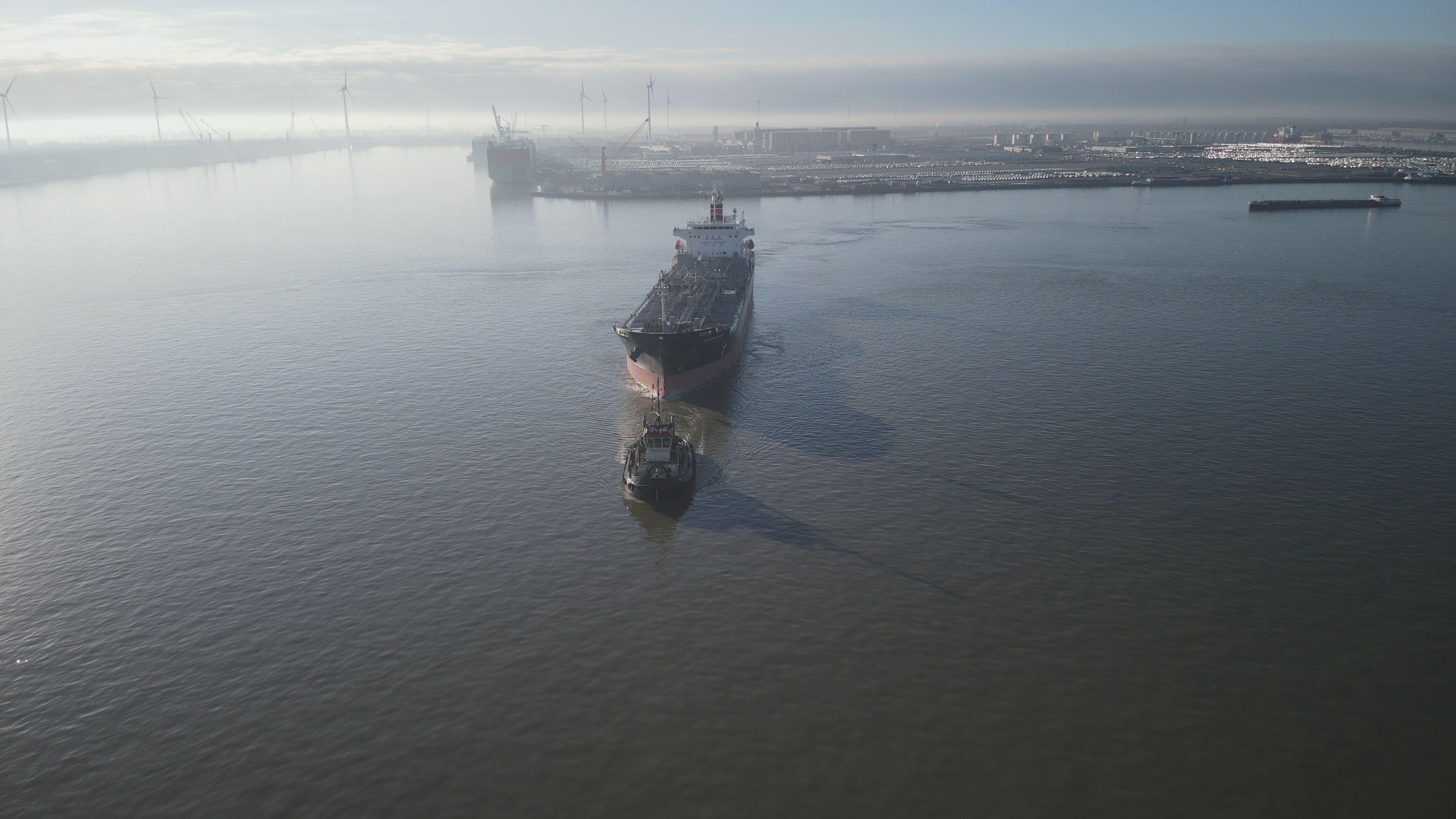Impact of the conflict between Russia and Ukraine on Port of Antwerp-Bruges
Permanent monitoring with customers and the competent authorities
Port of Antwerp-Bruges expresses its support and empathy for all the human suffering caused by the conflict in Ukraine. As a world port, the port of Antwerp is regularly confronted with the consequences of geopolitical movements. This conflict has led to a number of European sanctions against Russia. In order to monitor the impact of the crisis in the port as well as beyond, Port of Antwerp-Bruges remains in close contact with customers and the competent authorities.
Update 31 May 2022
For Port of Antwerp-Bruges, Russia was the fourth most important trading partner in 2021, with a throughput of 16.7 million tonnes. This included 4.8 million tonnes of liquid bulk (mainly naphtha, diesel and fuel oil) and 4 million tonnes of LNG.
If a ban is imposed on the import of Russian oil and oil products, this will have an impact on the trade between Russia and Europe, and therefore also on our port. We do not expect a major impact on the total volumes of imported oil and oil products as these can be replaced by volumes from other countries. We already saw this with the ban on the import of Russian steel, which was replaced by volumes from other countries such as South Korea, Turkey and India.
Update 15 April 2022
Based on the rules of the European Union, a roadmap has been drawn up for banning Russian-flagged ships from Belgian ports. This roadmap will be implemented as of Sunday, April 17. The rules were drawn up by the ministers of the North Sea and Foreign Affairs, the maritime police, Defense, Customs, the Department of Mobility and Public Works and DG Shipping.
The Maritime Information Crossroads (MIK) receives a list of the Russian ships coming to a Belgian port and follows that ship closely. The permission given to the ship is only valid for the ship, the Belgian port, the exact timing, and the goods mentioned in the permission.
The port authorities are responsible for the follow-up. For each of the permitted Russian ships arriving in the port, the port authorities must again request the proof of permitted cargo.
Goods that may be delivered to European ports are natural gas, petroleum, coal and other solid fossil fuels, all pharmaceutical, medical, agricultural and food products (such as wheat), fertilizers, and humanitarian aid. These rules will be in effect until August 10, 2022.
Update 5 April 2022
The conflict in Ukraine has led to new European sanctions against Russia, including a ban on Russian and Russian-operated ships from entering EU ports. There is an exception for agricultural and food products, humanitarian aid and energy products. We have not yet been able to fully examine the content of the measure. A meeting with DG Scheepvaart (division of FPS Mobility and Transport) is scheduled next week to further discuss the content and operational impact of this measure. At this stage, the impact in our port seems to be rather limited.
Update 9 March 2022
Monitoring
There is constant monitoring of the situation by Port of Antwerp, which is in close contact with customers and other stakeholders in the port community. By doing so, it emphasises the excellent cooperation between the competent authorities, customs and the various terminals involved.
European measures
The Antwerp Port Authority does not have the authority to pursue an independent policy in response to the conflict. For instance, the Port Authority cannot impose restrictions upon companies or ships. The Port Authority implements the policies of the Belgian and the European authorities.
As such, the export of a large number of goods including those which can be used for both civilian and military purposes ("dual use") is prohibited. Containerised cargo bound for Russia is subject to additional scrutiny by customs. More information can be found here (in Dutch). Furthermore, there is no ban on Russian-flagged or Russian-owned ships for the time being.
Facts & figures
Our port has no major maritime goods flows with Ukraine. Russia, on the other hand, was the fifth most important trade partner in 2021 with a throughput of 11.6 m tons (3.16 m tons of outbound and 8.5 m tons of inbound). This involved the following categories:
- Containers - 5.3 million tons (mainly plastics, wood, chemicals, automotive spare parts and paper)
- Liquid bulk - 4.8 million tons (mainly naphtha, diesel and fuel oil)
- Dry bulk - 700,000 tons (mainly fertilisers and coal)
- Conventional breakbulk - 650,000 tons (mainly steel imports)
In 2021, 51 unique Russian-flagged vessels entered the port of Antwerp, making a total of 108 calls out of a total of 14,181. These vessels only transported dry bulk, conventional general cargo and to a very limited extent containers.
